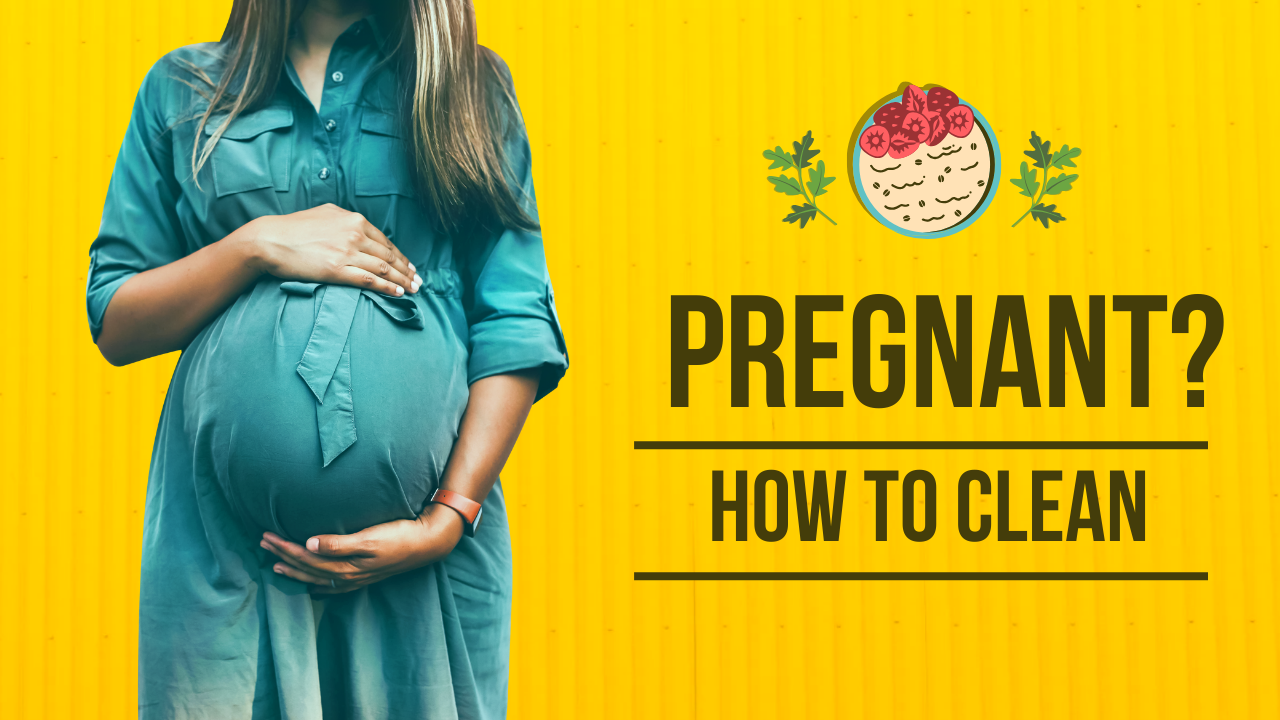Can Cleaning Affect Pregnancy? A Comprehensive Guide

Pregnancy is a delicate time, requiring expectant mothers to be cautious about their environment and activities. One common concern is whether cleaning, an everyday task, can impact pregnancy. Understanding the potential risks associated with cleaning during pregnancy is essential for maintaining both maternal and fetal health.
Understanding the Risks: Chemicals and Cleaning Products
One of the primary concerns for pregnant women is exposure to chemicals found in many household cleaning products. These products often contain ingredients like ammonia, bleach, and phthalates, which can be harmful when inhaled or absorbed through the skin. Research suggests that prolonged exposure to certain chemicals during pregnancy could potentially lead to complications such as respiratory issues, skin irritation, or even developmental problems in the fetus.
Tips for Safe Cleaning:
- Opt for Natural Cleaners: Whenever possible, choose natural or homemade cleaning solutions. Ingredients like vinegar, baking soda, and lemon juice are effective alternatives that pose less risk to you and your baby.
- Ventilation is Key: Ensure that the area you are cleaning is well-ventilated. Open windows and doors to allow fresh air to circulate, reducing your exposure to fumes.
- Wear Protective Gear: Use gloves and, if necessary, a mask to minimize direct contact with cleaning products.
Physical Strain and Pregnancy
Another consideration is the physical strain associated with cleaning. Tasks such as lifting heavy objects, bending, or standing for prolonged periods can be challenging for pregnant women and may lead to back pain, fatigue, or even preterm labor in extreme cases.
Safe Practices to Reduce Physical Strain:
- Avoid Heavy Lifting: Delegate heavy lifting tasks to someone else or use tools like a dolly or cart to move items.
- Take Breaks: Listen to your body and take frequent breaks to avoid overexertion.
- Maintain Proper Posture: When bending, bend at the knees instead of the waist to reduce strain on your back.
Allergens and Respiratory Health
Cleaning can stir up dust, mold, and other allergens that may affect respiratory health, particularly in pregnant women who are already prone to nasal congestion due to hormonal changes. Inhaling allergens can lead to discomfort and, in some cases, exacerbate conditions like asthma.
Reducing Allergen Exposure:
- Dust Regularly: Use a damp cloth to dust surfaces, preventing particles from becoming airborne.
- Mold Management: Use mold-resistant products in areas prone to moisture, like bathrooms and kitchens, and clean up any mold promptly.
- Vacuum with a HEPA Filter: A vacuum equipped with a HEPA filter can help trap allergens more effectively.
The Importance of Delegation
While it’s natural to want a clean and tidy home, pregnancy is a time to prioritize health and well-being. Delegating cleaning tasks to a partner, family member, or professional cleaning service can be a wise decision, reducing your exposure to potential risks and allowing you to focus on self-care.
Conclusion
In addition to choosing safer cleaning products, it’s crucial to be mindful of the physical strain that cleaning can impose on your body. Pregnancy already places significant demands on your body, and tasks such as lifting heavy objects, bending, or standing for long periods can exacerbate discomfort or even lead to complications. By taking regular breaks, maintaining proper posture, and avoiding strenuous activities, you can prevent unnecessary stress and protect your well-being.


